Cambodian Assistance and Cultural Preservation Project Inc.


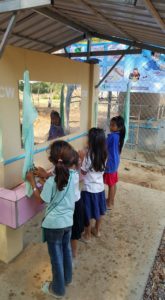
Children at Omani Village primary school are lining up to wash their hands with safe, clean water, thanks to a school-sized biosand filter installed in 2016. Using the same design that is used worldwide for family-sized filters, this 500-gallon filter draws on water pumped from ponds near the school, filters it through the biosand filter BSF into a storage tank, and pipes it to handwashing stations.
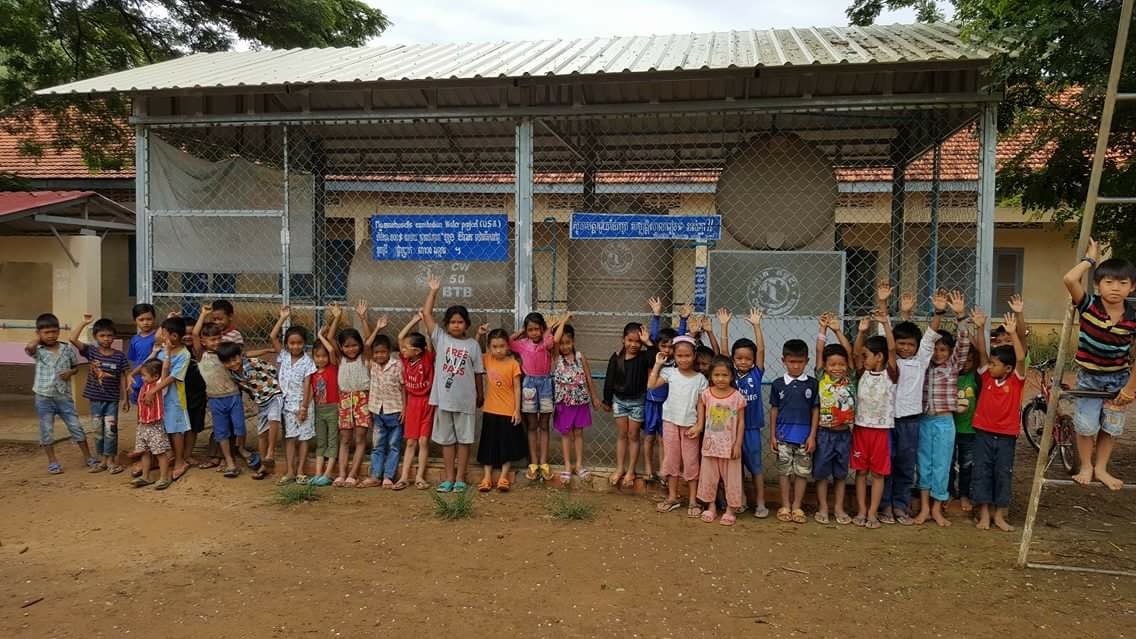
Children at handwash station Omani Village 2016
School Biosand Filter, Primary School in Omani, 2016
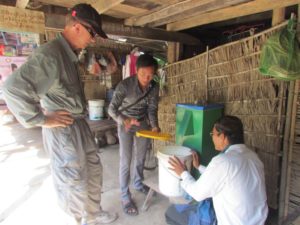
In 2014 we funded training and materials for 90 families to install and use biosand filters for safe drinking water, and in 2015 we helped the village temple to dredge out three ponds to expand the villages' ability to store water from the rainy season. Heat, head monk of Omani Buddhist temple, has been leading these projects and stays in close touch with Sokha and Ny Mao, Cambodian-Americans who left their homeland in 1983, settled in Amherst, MA, and founded the MA Cambodian Water Project in 2003 with friends and neighbors.
Installing family biosand filter, Omani 2013
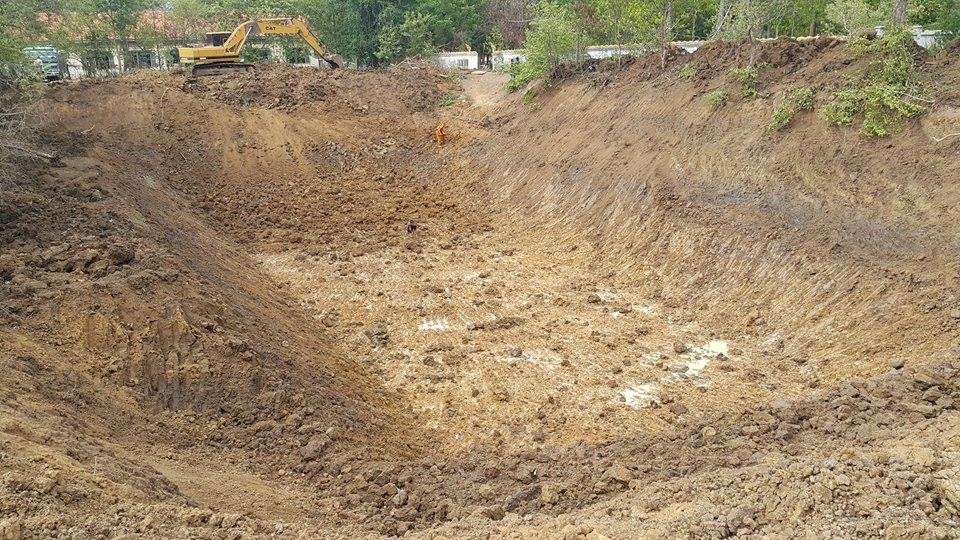
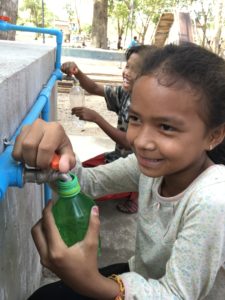
In 2017 we funded another school biosand filter in Kampong Chnang Province. Children can fill their water bottles with clean, safe water as well as learn good hygiene by using the handwashing station. In this region we’ve been funding hand-dug concrete wells for over 13 years, working closely with local project leaders such as Sopal, head monk in Trapang Chan and Saruen Soek, a lay community leader near Ang Pagoda.
School children filling water bottles a BSF, Sierey School
Concrete well # 36 in Ang region. Saruen stands behind the well.
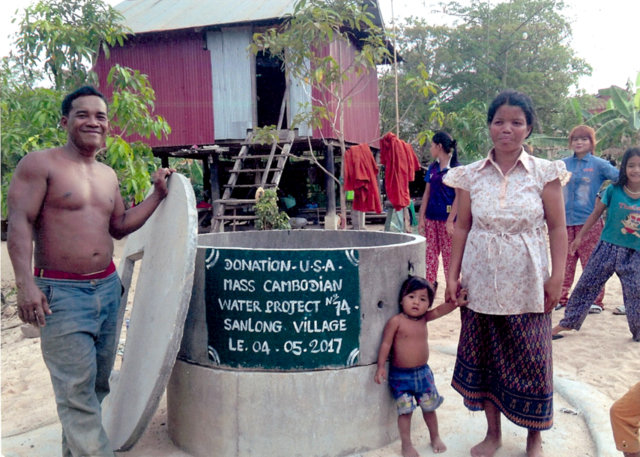
We are collaborating with two Cambodian NGOs, Bareebo and Clear Cambodia, which specialize in community development, hygiene education, and biosand filter technology. They have contributed funding, helped find suitable schools, built and delivered filters, installed the large school filters, and offered training and support to families, local leaders, school staff, and children.
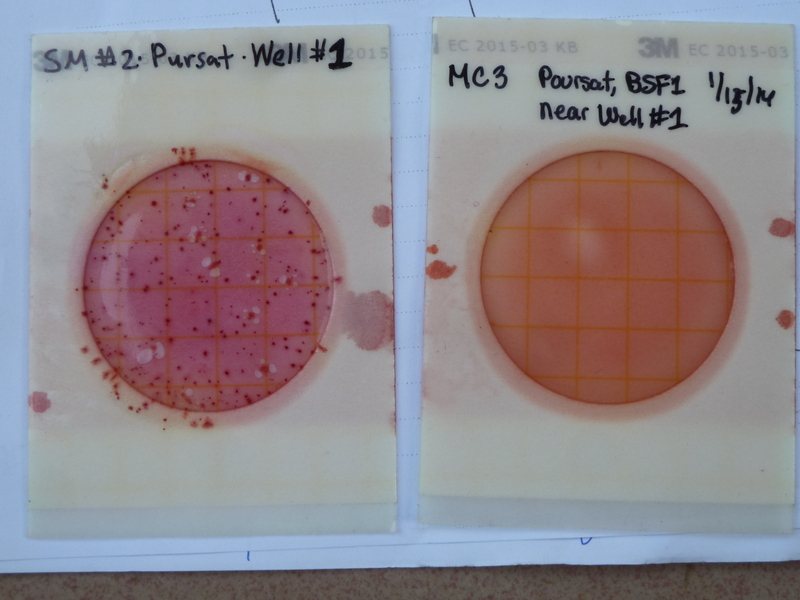
Over half of Cambodians lack access to safe water, and childhood disease and death from unsafe water is high. Biosand filters (BSF) are an effective, affordable, durable technology for cleaning particles and pathogens from water, a fact that we confirmed in 2014 when a group of Marlboro students and faculty traveled with us to Cambodia, and we tested ponds, wells, and BSF-filtered water. Water from the nearby river was high risk for E. coli, but after a journey through the biosand filter, it was clean.
Well # 74 in Trapang Chan
Test culture showing E coli risk from water drawn from a well before (left) and after (right) passing through BSF
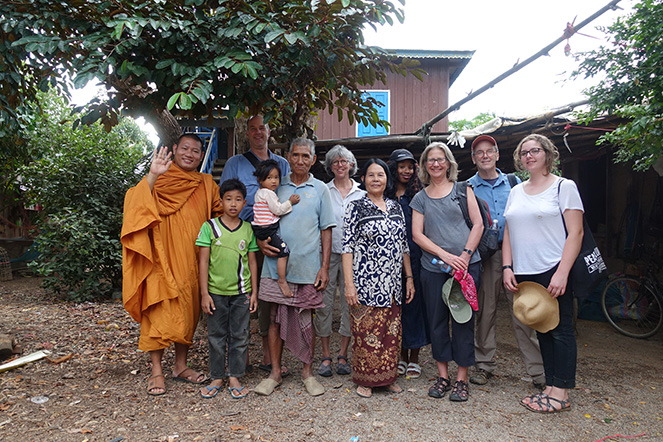
In January 2018, a group of faculty and students from Marlboro College in Marlboro, Vermont visited both regions, and worked with Clear Cambodia and local leaders to plan community biosand filters at three additional schools. Each school BSF costs over $2500. Help us to raise additional funds for these special projects by donating to the water project now!
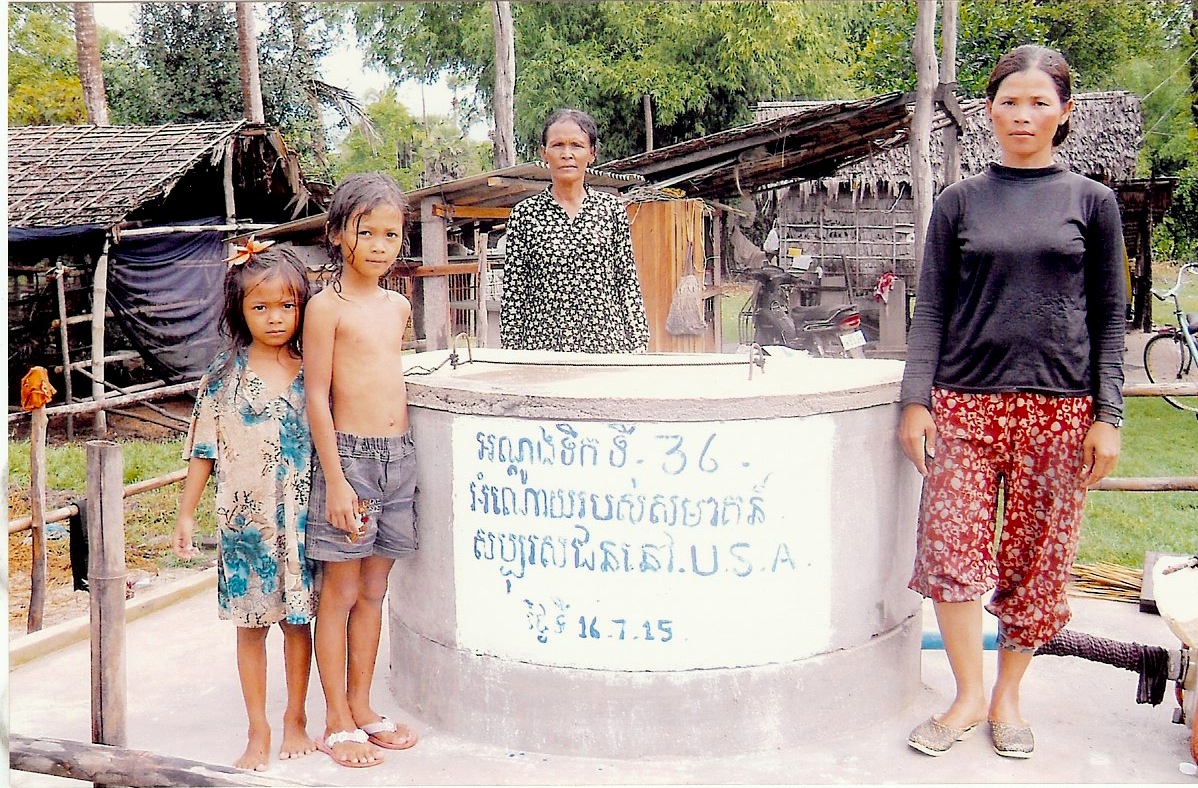
The Cambodian Water Project
Projects FY 2019 & 2020
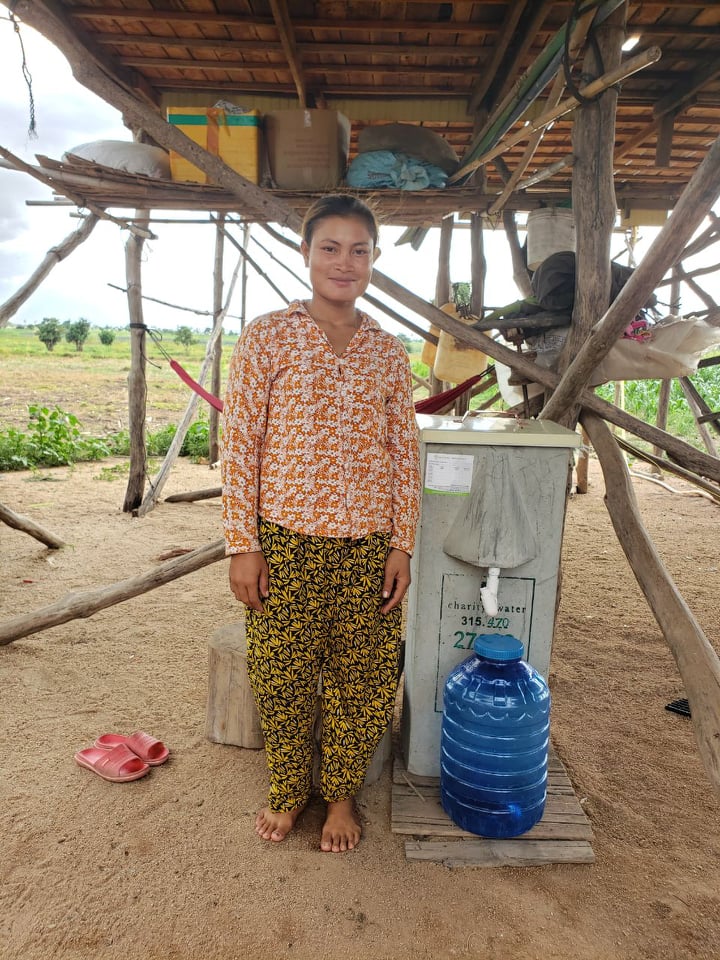
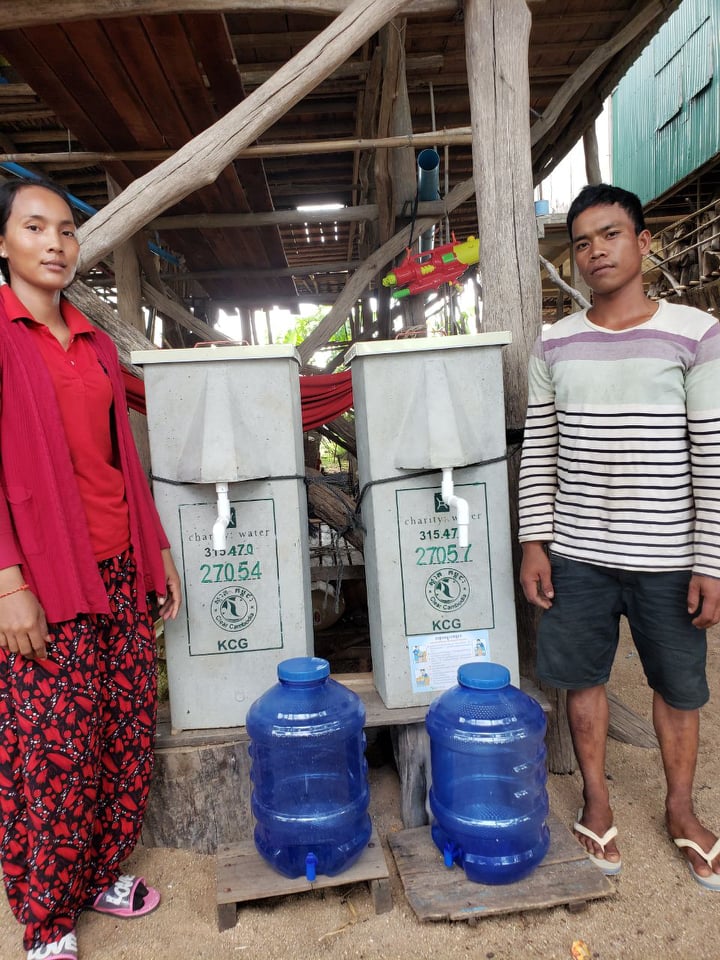
This year, thanks to the generosity of our donors, we were able complete the following projects:
The construction and installation of household Bio-sand filtration units for 150 families in the area of Kampong Preah. We were also able to provide 100 additional filtration units for families from the floating village on the Tonle Sap lake who had been displaced when their village was forcibly disbanded by the Cambodian government.
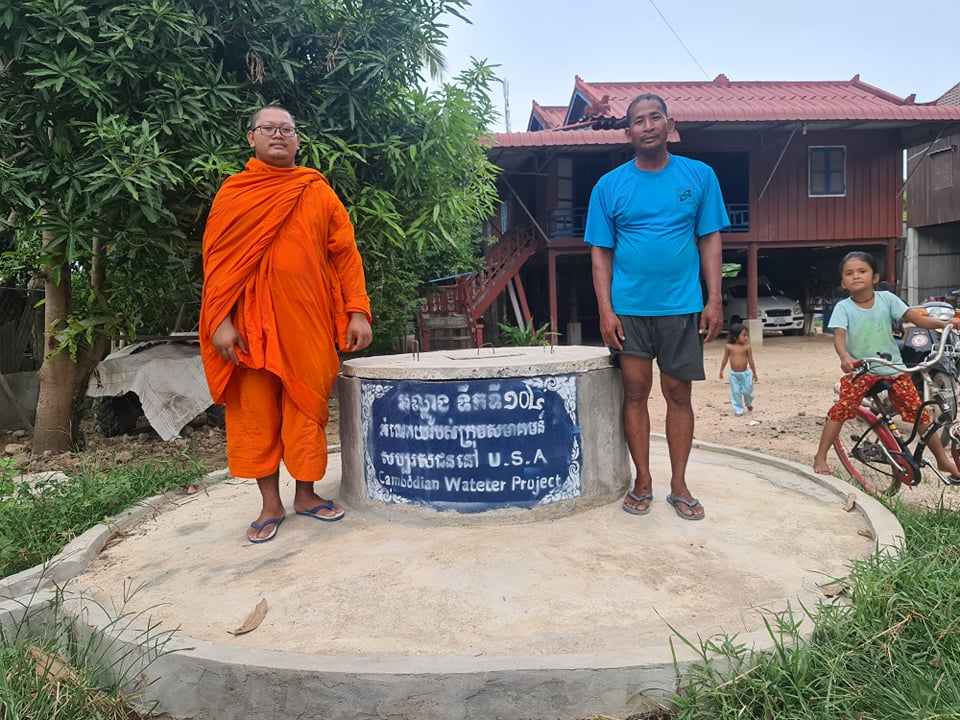
Eight wells in TraPang Chann and three in Kampong Preah were constructed serving 4 to 5 families each.
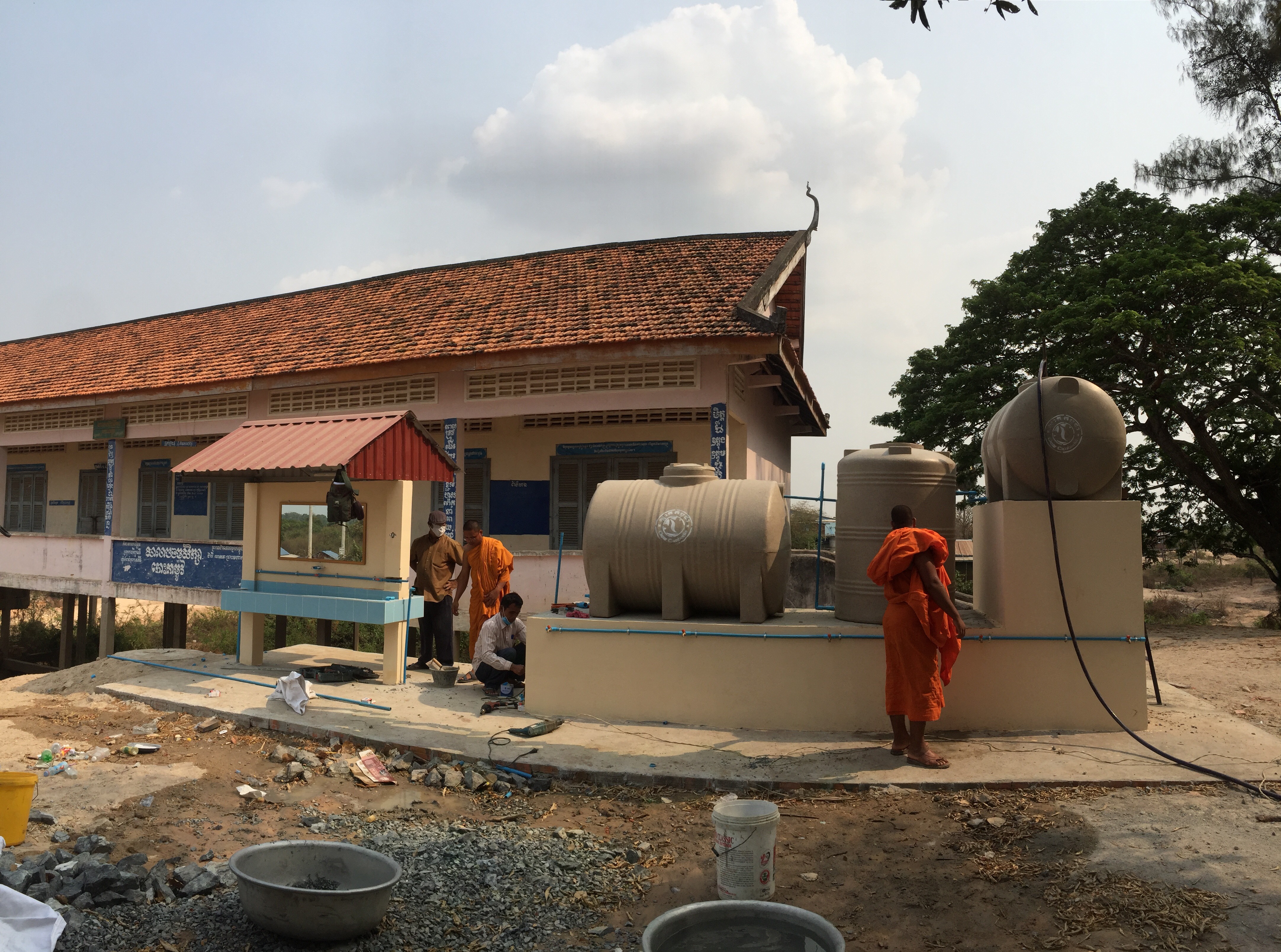
The construction and installation of a large Bio-sand filtration unit and hand washing station for a school in Kampong Preah that will serve the students, staff and some of the greater community.
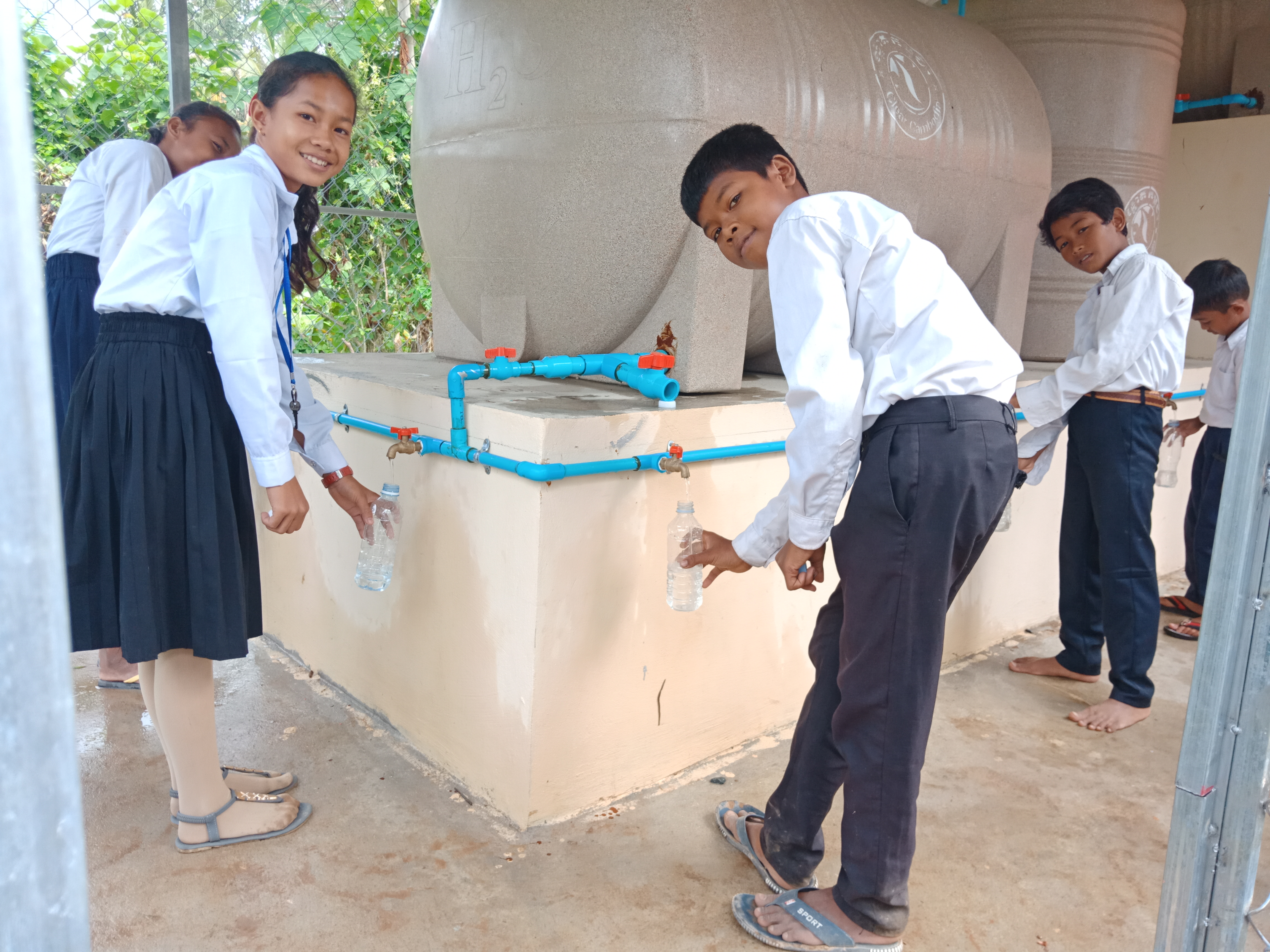
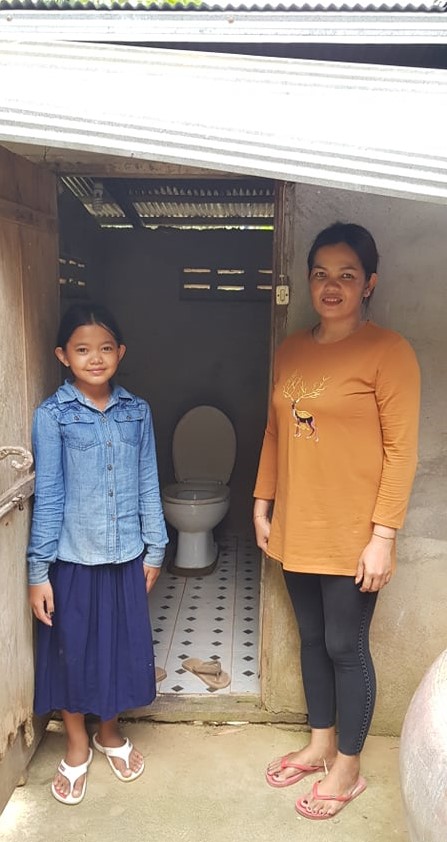
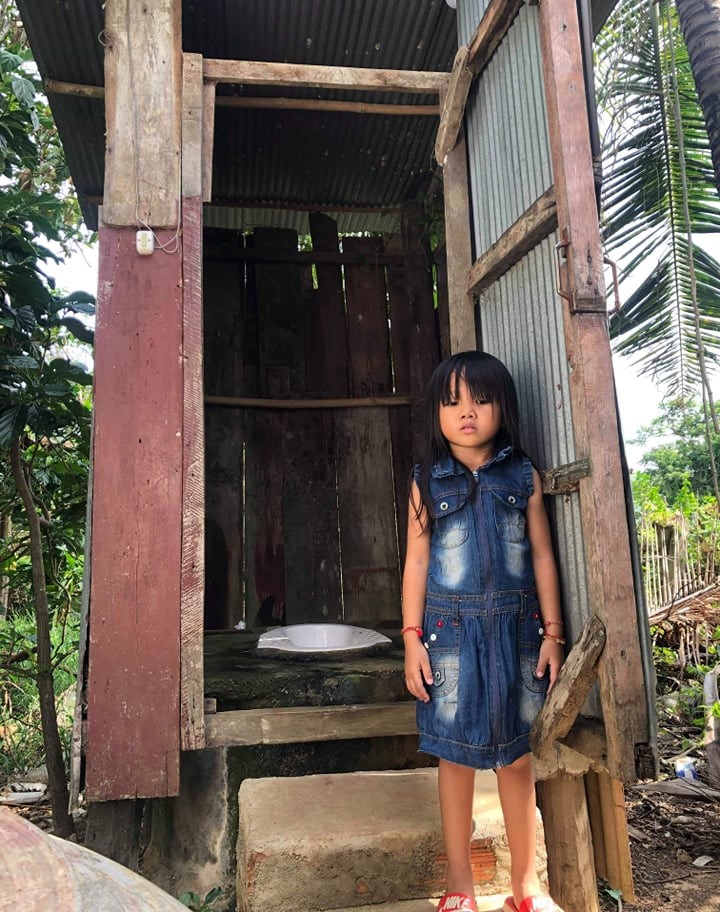
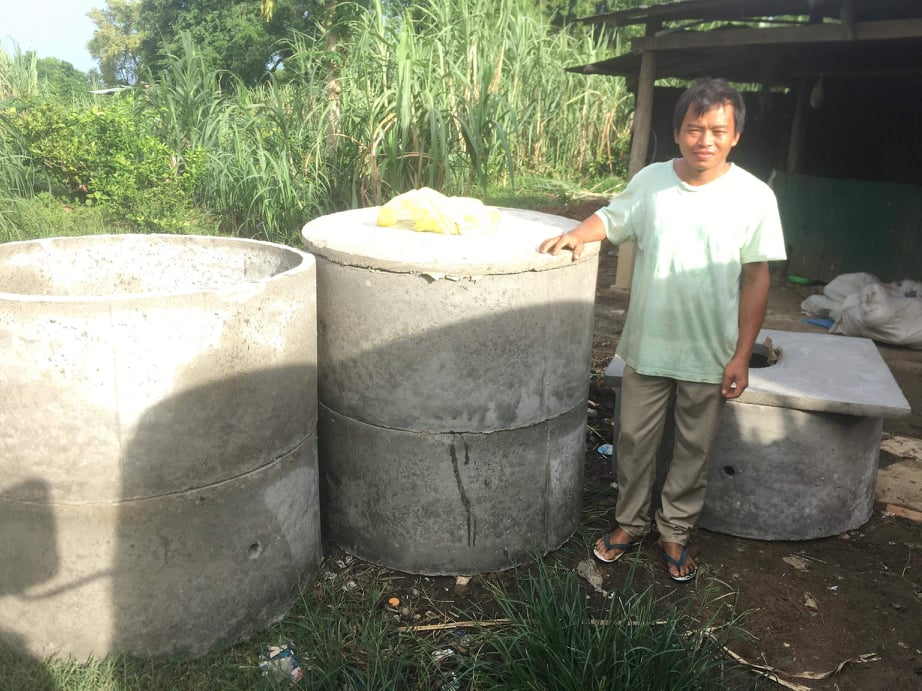
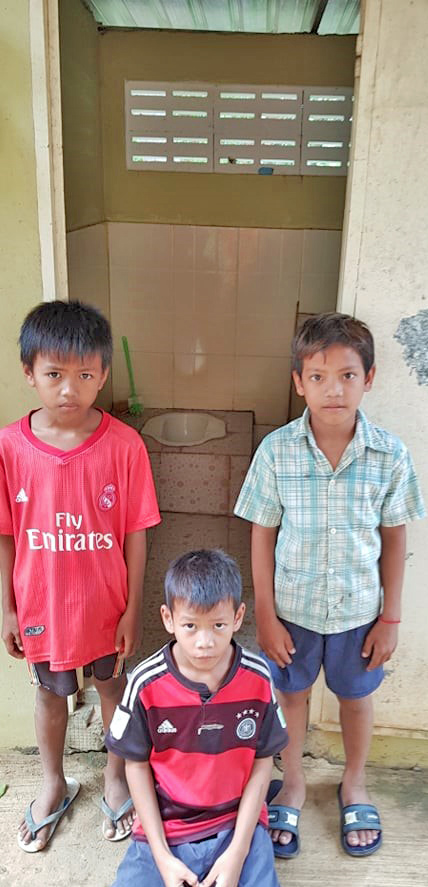
Toilets are something that we in the US take for granted. But in the rural villages of Cambodia they are a coveted necessity and often the item most requested when asked what is needed most. We were able to provide another 10 toilets to residents of the village of Omani this year.
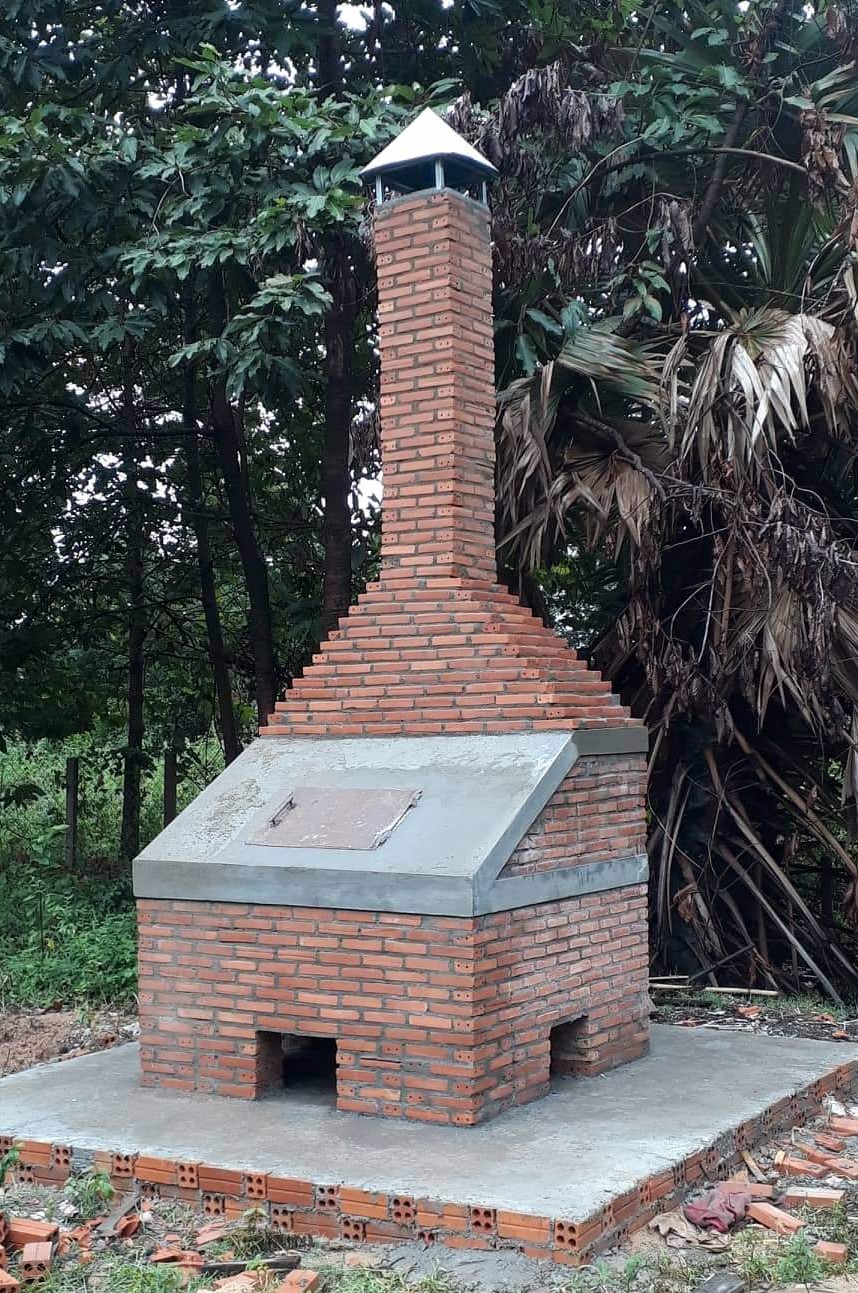
At the beginning of this year we had a request from the Kaoh Chum school to build an incinerator for trash disposal which had become a problem. While it didn't seem to fit with this project's emphasis on sanitation and potable water, and the idea of burning trash clashed with our ecological sensibilities, after careful consideration we agreed.
In Cambodia the open burning of trash is ubiquitous, and while there has been some effort to establish trash collection in the cities, open burning is still the common practice in the countryside. We learned that the incinerator would provide contained burning at a much higher temperature thereby providing a safer and less polluting solution.
In Cambodia the open burning of trash is ubiquitous, and while there has been some effort to establish trash collection in the cities, open burning is still the common practice in the countryside. We learned that the incinerator would provide contained burning at a much higher temperature thereby providing a safer and less polluting solution.
Copyright 2020 Cambodian Assistance and Cultural Preservation Project, Inc.
FY 2021-2022
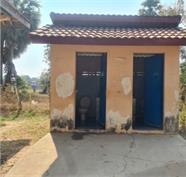

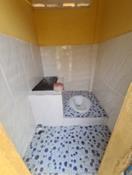
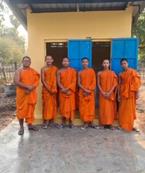
We sent $500 for the renovation of 2 toilets at primary school in Ang, Cambodia. Left: toilets had become unusable. Center photos show new roof, plaster, paint, with rebuilt concrete platform, tile, doors, toilets and wash water system. Right: Young monks from Ang Pagoda, led by head monk Chhon Lita (at left), did the work. February, 2021.
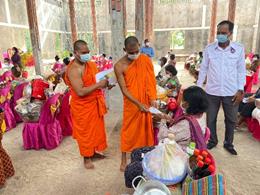
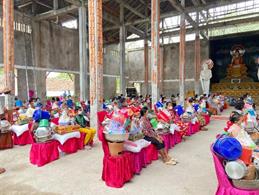
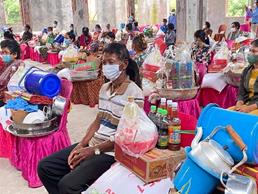
This September, when the monks alerted us to the growing problem of hunger in their villages, we were able to respond quickly. We were asked if we could help, and we still had $2700 in our account. As photos above show, there was a beautiful ceremony at the temple for the families who received these gifts. Cambodian culture lifts up the dignity of giving and receiving as part of a wise and ancient Buddhist tradition; something we can all learn from.























